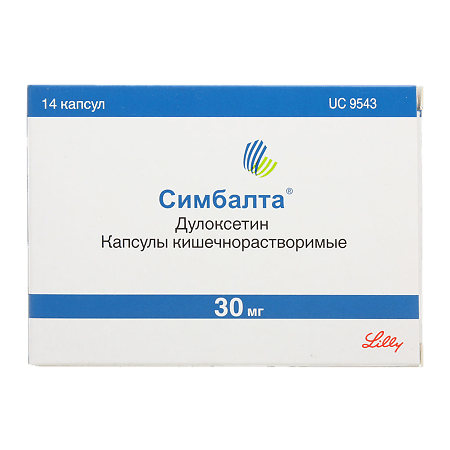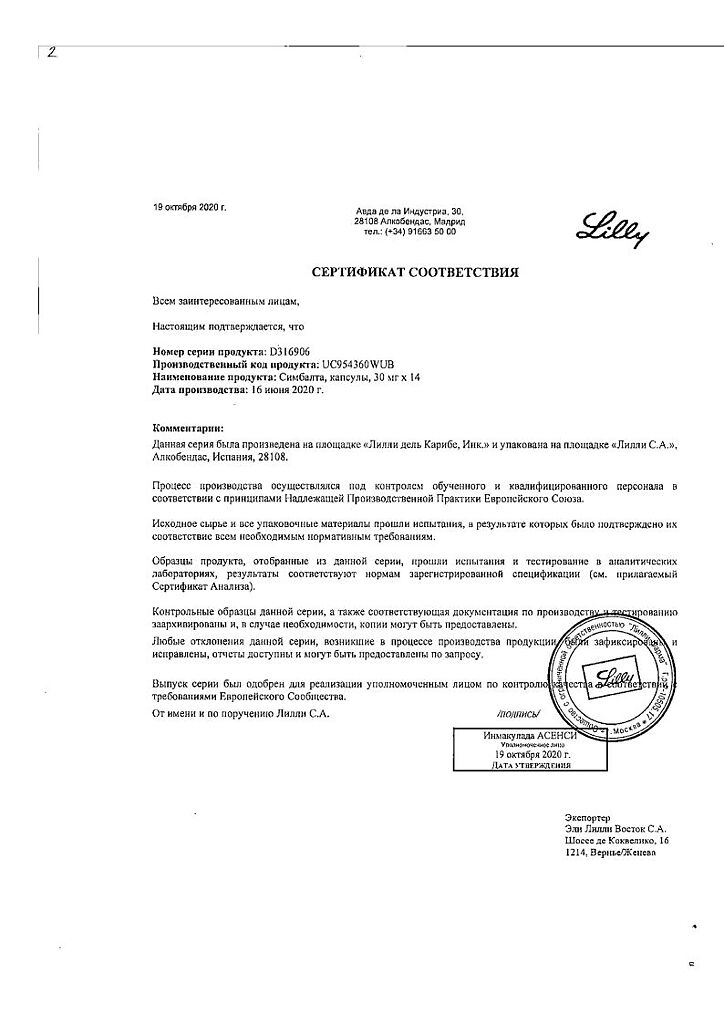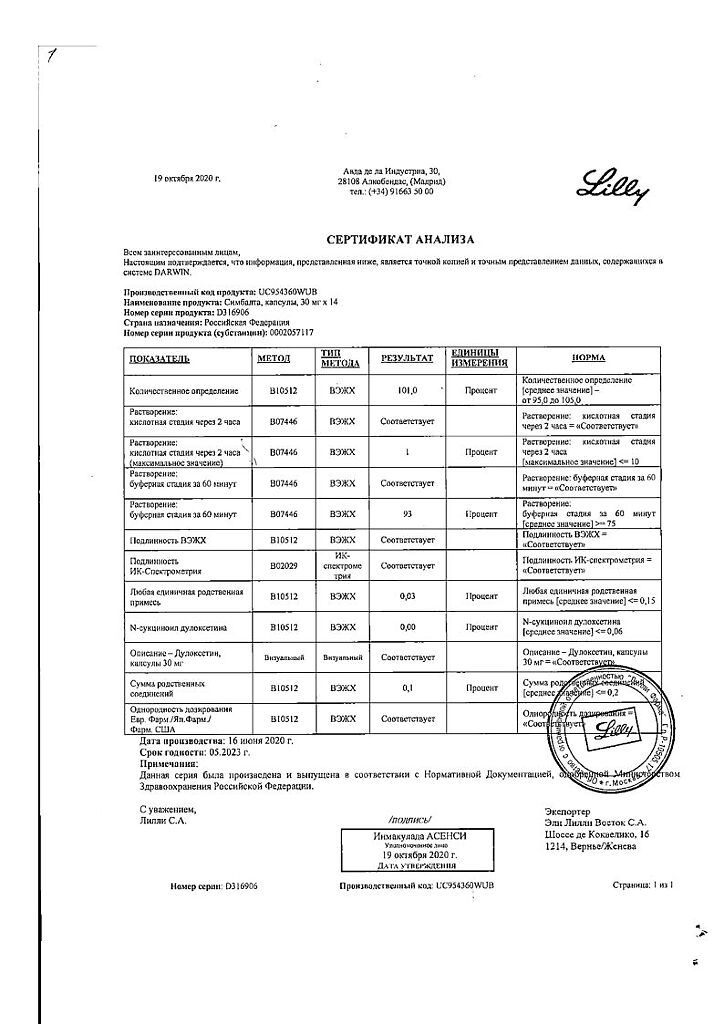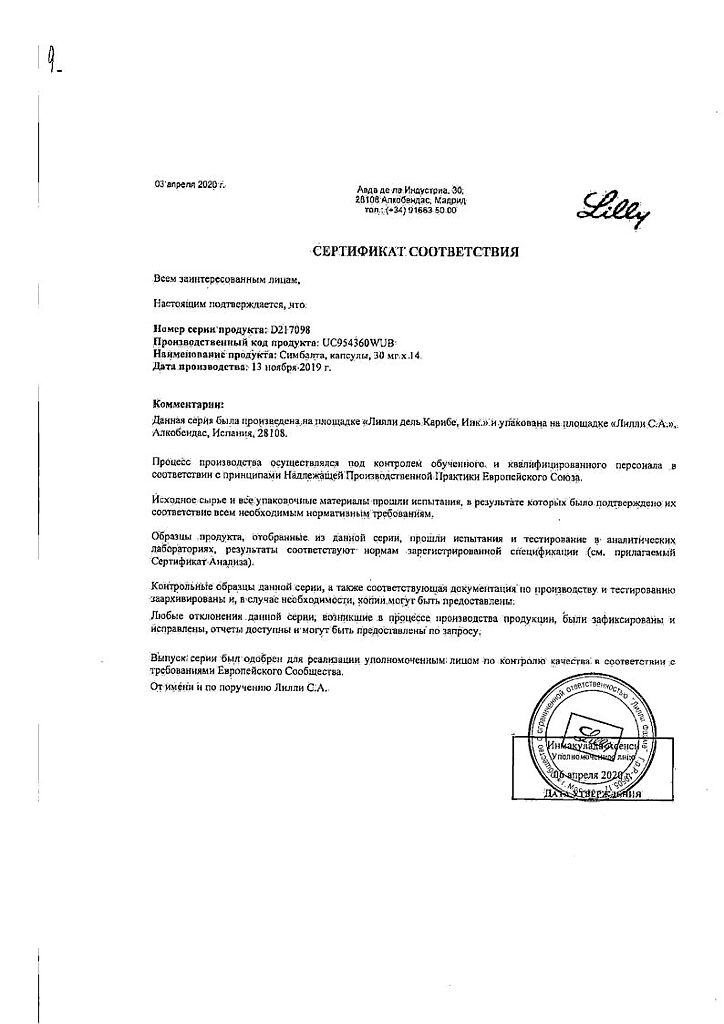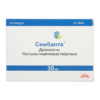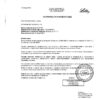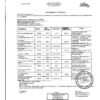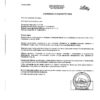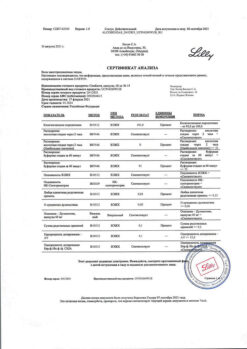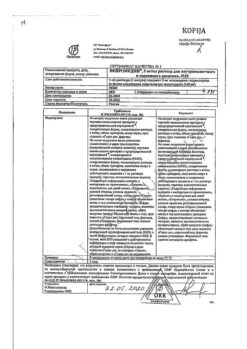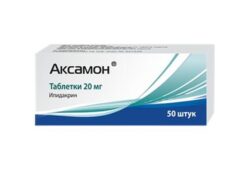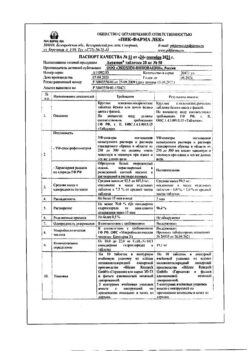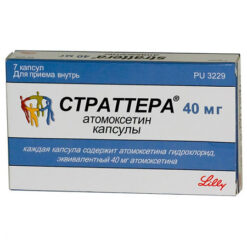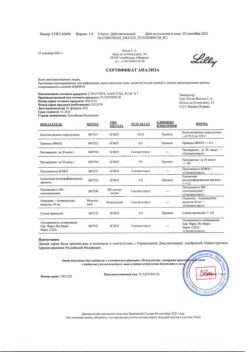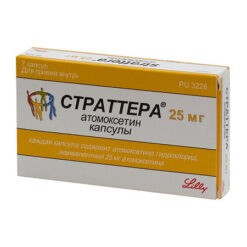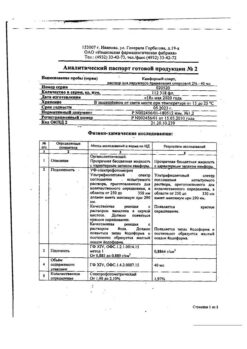No products in the cart.
Cymbalta, 30 mg capsules 14 pcs
€67.02 €55.85
Description
Antidepressant, serotonin and norepinephrine reuptake inhibitor and weakly inhibits dopamine reuptake, has no significant affinity for histamine, dopamine, choline and adrenoreceptors.
Indications
Indications
depression;
painful form of diabetic neuropathy;
generalized anxiety disorder;
chronic pain syndrome of the musculoskeletal system (including those caused by fibromyalgia, chronic pain syndrome in
lower back and osteoarthritis of the knee joint).
Pharmacological effect
Pharmacological effect
An antidepressant, a serotonin and norepinephrine reuptake inhibitor and weakly suppresses dopamine uptake, does not have significant affinity for histamine, dopamine, cholinergic and adrenergic receptors.
Special instructions
Special instructions
Monoamine oxidase inhibitors (MAOIs). Severe reactions, sometimes fatal, have been reported in patients receiving a serotonin reuptake inhibitor in combination with a MAOI, including hyperthermia, rigidity, myoclonus, peripheral disturbances with possible rapid fluctuations in vital signs, and mental status changes including severe agitation leading to delirium and coma.
These reactions have also been observed in patients who were discontinued with a serotonin reuptake inhibitor shortly before being prescribed an MAOI. In some cases, patients experienced symptoms consistent with neuroleptic malignant syndrome. The effects of combined use of duloxetine and MAOIs have not been evaluated in humans or animals.
Therefore, given the fact that duloxetine is an inhibitor of both serotonin and norepinephrine, it is not recommended to take duloxetine in combination with an MAOI or for at least 14 days after stopping treatment with an MAOI. Based on the half-life of duloxetine, you should wait at least 5 days after stopping duloxetine before taking an MAOI.
Exacerbation of manic/hypomanic states: As with similar drugs that act on the central nervous system, duloxetine should be used with caution in patients with a history of manic episodes.
Epileptic seizures: As with similar drugs that affect the central nervous system, duloxetine should be used with caution in patients with a history of epileptic seizures.
Mydriasis: Cases of mydriasis have been observed with duloxetine, so caution should be exercised when prescribing duloxetine to patients with elevated intraocular pressure or those at risk of developing acute angle-closure glaucoma.
Hepatic or renal impairment: In patients with severe renal impairment (creatinine clearance <30 mL/min) or severe hepatic impairment, increased plasma concentrations of duloxetine are observed. If duloxetine is clinically justified in such patients, lower initial doses of the drug should be used.
Suicidal attempts: with depression, there is a possibility of suicide attempts, which may persist until stable remission occurs. Careful monitoring of patients at risk is necessary.
Active ingredient
Active ingredient
Duloxetine
Composition
Composition
1 caps. contains duloxetine (as hydrochloride) 30 mg.
Pregnancy
Pregnancy
Due to insufficient experience with the use of Cymbalta during pregnancy, the drug should be prescribed during pregnancy only if the potential benefit to the patient significantly outweighs the potential risk to the fetus.
Patients should be warned that if they become pregnant or plan to become pregnant during treatment with duloxetine, they should inform their doctor.
Due to the lack of experience with the use of duloxetine in women during breastfeeding, breastfeeding is not recommended during duloxetine therapy.
Contraindications
Contraindications
Hypersensitivity to the drug.
Concomitant use with monoamine oxidase inhibitors (MAOIs).
Uncompensated angle-closure glaucoma
With caution
With exacerbation of a manic/hypomanic state, epileptic seizures, mydriasis, impaired liver or kidney function, with the likelihood of suicide attempts.
Side Effects
Side Effects
Most often (10%): dizziness (except vertigo), dry mouth, nausea, constipation, sleep disturbances (drowsiness or insomnia), headache (less common than when taking placebo).
Less common (1-10%): diarrhea, vomiting, tremor, loss of appetite, weight loss, weakness, increased sweating, hot flashes, blurred vision, anorgasmia, decreased libido, delayed and impaired ejaculation and erectile dysfunction.
A slight increase in fasting blood glucose concentrations in patients with painful diabetic neuropathy.
Dizziness, nausea, and headache were reported as common adverse effects when discontinuing duloxetine.
Interaction
Interaction
Monoamine oxidase inhibitors (MAOIs). Due to the risk of developing serotonin syndrome, duloxetine should not be used in combination with an MAOI, and should not be used for at least 14 days after discontinuation of MAOI treatment.
Overdose
Overdose
Several cases of overdose have been reported with simultaneous oral administration of up to 1400 mg of the drug, which did not have fatal consequences. Overdose may be accompanied by the following symptoms: tremor, clonic convulsions, ataxia, vomiting and loss of appetite.
Treatment for overdose. A specific antidote is not known. Cardiac monitoring and vital signs are recommended, along with symptomatic and supportive treatment.
Storage conditions
Storage conditions
At 15–30 °C
Shelf life
Shelf life
3 years
Manufacturer
Manufacturer
Lilly del Caribe Inc., Puerto Rico
Additional information
| Shelf life | 3 years |
|---|---|
| Conditions of storage | At 15-30 °C |
| Manufacturer | Lilly del Caribe Inc., Puerto Rico |
| Medication form | capsules |
| Brand | Lilly del Caribe Inc. |
Other forms…
Related products
Buy Cymbalta, 30 mg capsules 14 pcs with delivery to USA, UK, Europe and over 120 other countries.

